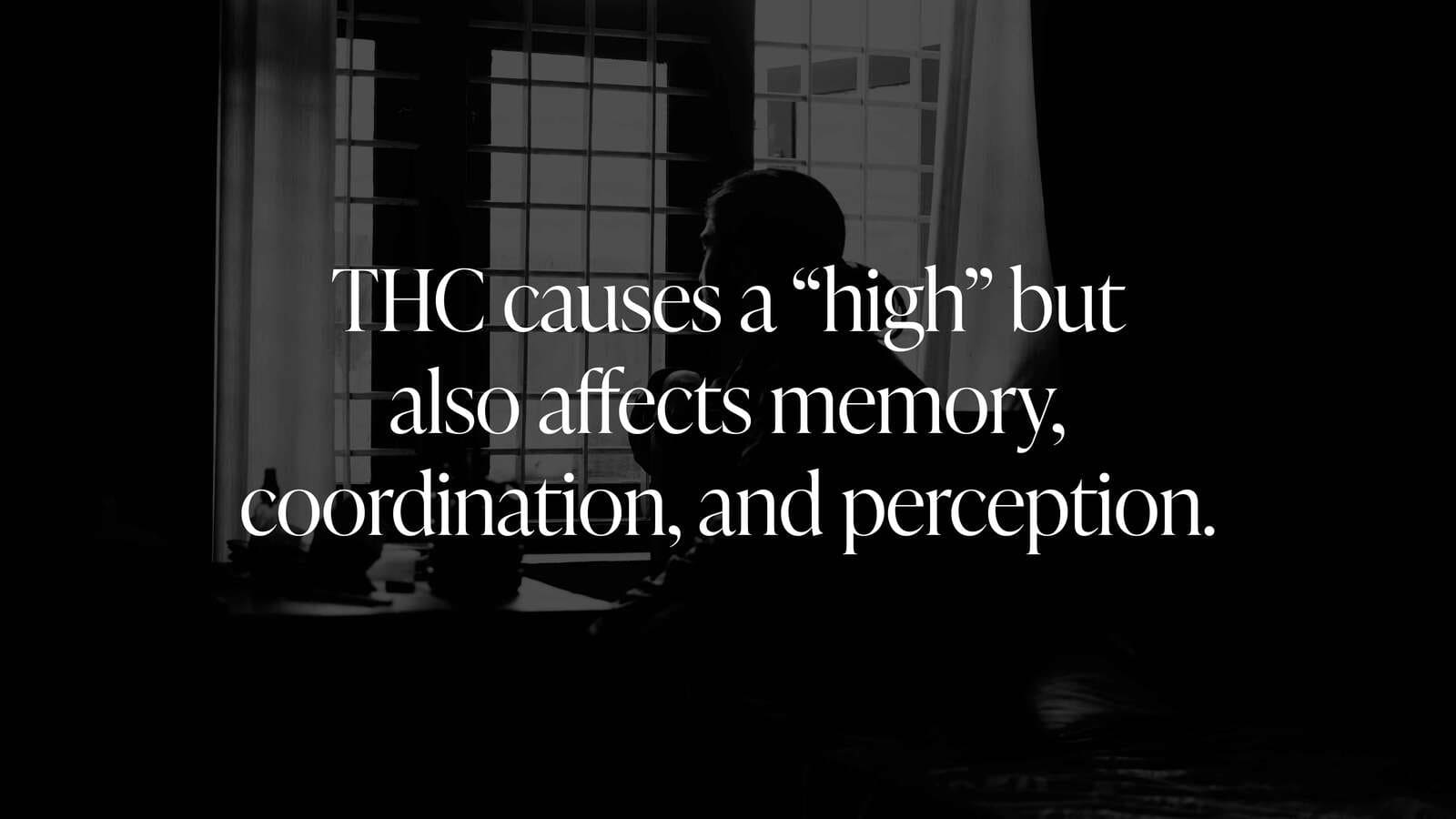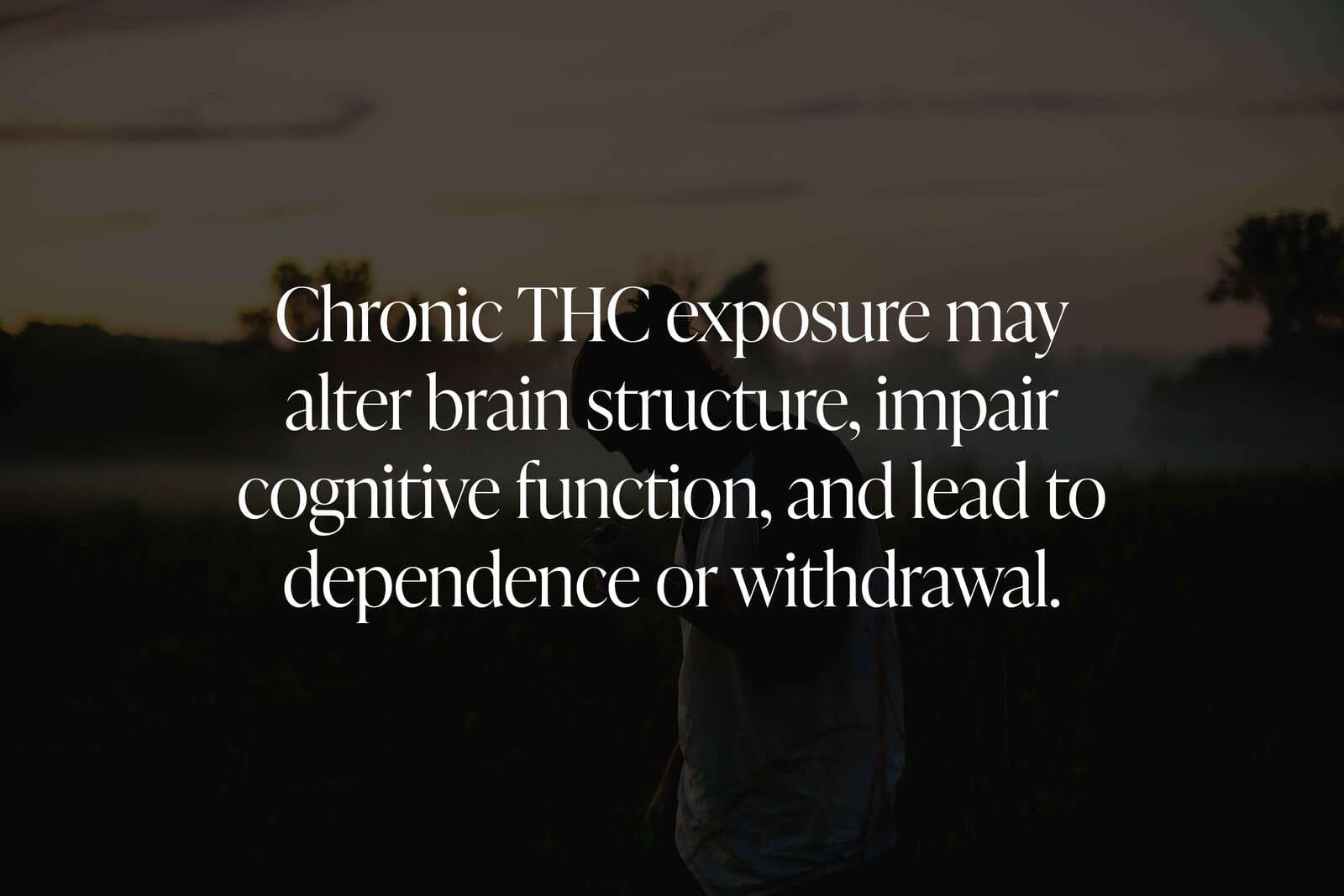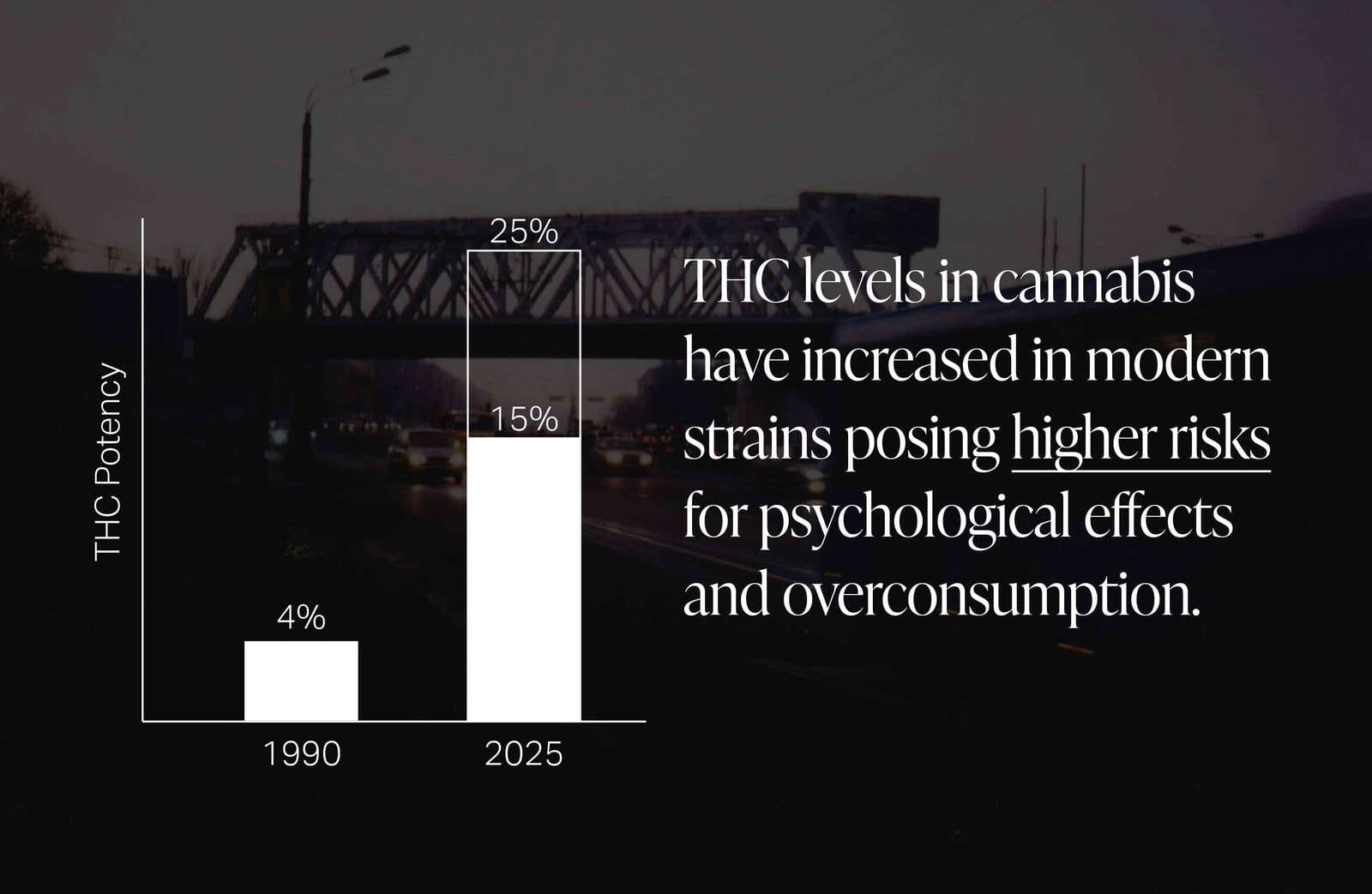Table of Contents
Tetrahydrocannabinol (THC) is the primary psychoactive compound in cannabis, responsible for the “high” associated with marijuana use. While THC can produce feelings of relaxation and euphoria, it also affects memory, perception, and coordination. Understanding how THC interacts with the brain is essential for making informed decisions about cannabis use and for recognizing its potential impact on long-term mental health.

How THC Works in the Body
The human body has an endocannabinoid system (ECS), a complex network of receptors, enzymes, and signaling molecules that helps regulate mood, appetite, pain sensation, and memory. THC is structurally similar to naturally occurring endocannabinoids, which allows it to bind to cannabinoid receptors — primarily the CB1 receptors found in the brain and central nervous system.
When THC binds to these receptors, it changes how neurons communicate, disrupting normal brain signaling. This disruption is what causes marijuana’s psychoactive effects.
- CB1 Receptors: Found mostly in the brain and spinal cord; responsible for most psychoactive effects.
- CB2 Receptors: Found primarily in the immune system; involved in inflammation and immune response.
Short-Term Effects on the Brain
The short-term effects of THC typically begin within minutes when smoked or vaporized and within one to two hours when consumed as an edible. These effects can last for several hours.
- Euphoria and Relaxation: Activation of reward pathways releases dopamine, producing a “high.”
- Altered Perception of Time: Minutes may feel like hours due to changes in temporal processing.
- Short-Term Memory Impairment: Difficulty recalling recent information.
- Decreased Coordination: Slower reaction times and impaired motor control.
- Heightened Sensory Perception: Colors may seem brighter, sounds more vivid, and food more flavorful.
For some individuals, especially at higher doses, THC can also cause anxiety, paranoia, or panic.
Long-Term Effects of THC Use
Repeated exposure to THC can lead to more permanent changes in brain function, particularly for those who start using during adolescence when the brain is still developing. Long-term effects may include:
- Altered Brain Structure: Studies show changes in the volume and connectivity of areas like the hippocampus, which is involved in memory formation.
- Reduced Cognitive Performance: Long-term users may experience decreased attention, learning ability, and decision-making skills.
- Tolerance and Dependence: Over time, the brain reduces the number of CB1 receptors in response to frequent THC exposure, requiring higher doses for the same effect.
- Withdrawal Symptoms: Irritability, insomnia, loss of appetite, and mood changes may occur when heavy users quit.

THC and the Adolescent Brain
Adolescents are more vulnerable to the effects of THC because the prefrontal cortex — the brain region responsible for judgment, planning, and impulse control — is still developing until the mid-20s. Regular use during this period may increase the risk of cognitive impairment, mental health issues, and cannabis use disorder later in life.
THC, Mental Health, and Addiction
While marijuana has a reputation for being less addictive than substances like alcohol or opioids, research indicates that about 9% of users develop cannabis use disorder. This risk increases to 17% for those who begin using in adolescence and to 25–50% for daily users.
THC can also exacerbate or trigger mental health conditions in susceptible individuals:
- Anxiety Disorders: High THC concentrations may increase anxiety and panic attacks.
- Depression: While some use cannabis to self-medicate, long-term heavy use has been linked to depressive symptoms.
- Psychosis: High doses of THC, especially in potent modern strains, have been associated with an increased risk of psychosis in vulnerable individuals.
Structured support programs like marijuana addiction treatment can help individuals reduce or quit THC use, manage withdrawal, and address underlying mental health concerns.
THC Potency Today vs. the Past
One reason modern marijuana may have stronger effects on the brain is the significant increase in THC potency over the last few decades. In the 1990s, cannabis typically contained around 4% THC; today, many strains contain 15–25%, and concentrates can exceed 80%. This higher potency increases the risk of overconsumption and intensifies potential side effects.

Medical Use of THC
While much of the discussion around THC focuses on recreational use, it also has medical applications. In controlled doses, THC can help manage:
- Chronic Pain
- Nausea and Vomiting from Chemotherapy
- Muscle Spasticity in Multiple Sclerosis
- Loss of Appetite in Conditions like HIV/AIDS
However, medical use should be supervised by a healthcare provider to balance benefits with potential cognitive and psychological risks.
Strategies for Reducing Harm
For individuals who choose to use cannabis, harm reduction strategies can help minimize risks:
- Limit Frequency and Dose: Avoid daily use and start with low doses, especially with edibles.
- Avoid High-Potency Products: Choose lower-THC strains to reduce the risk of anxiety and impairment.
- Delay Use Until Adulthood: Waiting until after brain development reduces the risk of long-term effects.
- Avoid Mixing with Alcohol or Other Drugs: Combining substances can intensify side effects and impair judgment.
Building a Healthier Future After THC Dependence
Quitting THC can lead to improvements in memory, mood, and overall mental clarity. Recovery often involves replacing cannabis use with healthier coping strategies, engaging in physical activity, and building strong social support networks.
Broader Insights into Marijuana and Recovery
How Long Does Weed Stay in Your System After Quitting?
THC can be detectable for days to weeks after last use, depending on frequency, body composition, and testing method.
Is Cannabis Addictive Physically or Mentally?
While withdrawal is typically mild, the psychological habit can be deeply ingrained.
How Long Does It Take to Detox from THC Naturally?
The detox timeline varies, with daily users potentially requiring a month or more to fully clear THC.
Can You Speed Up THC Detox and Pass a Drug Test?
Healthy lifestyle changes can support the process, but only time fully eliminates THC.











